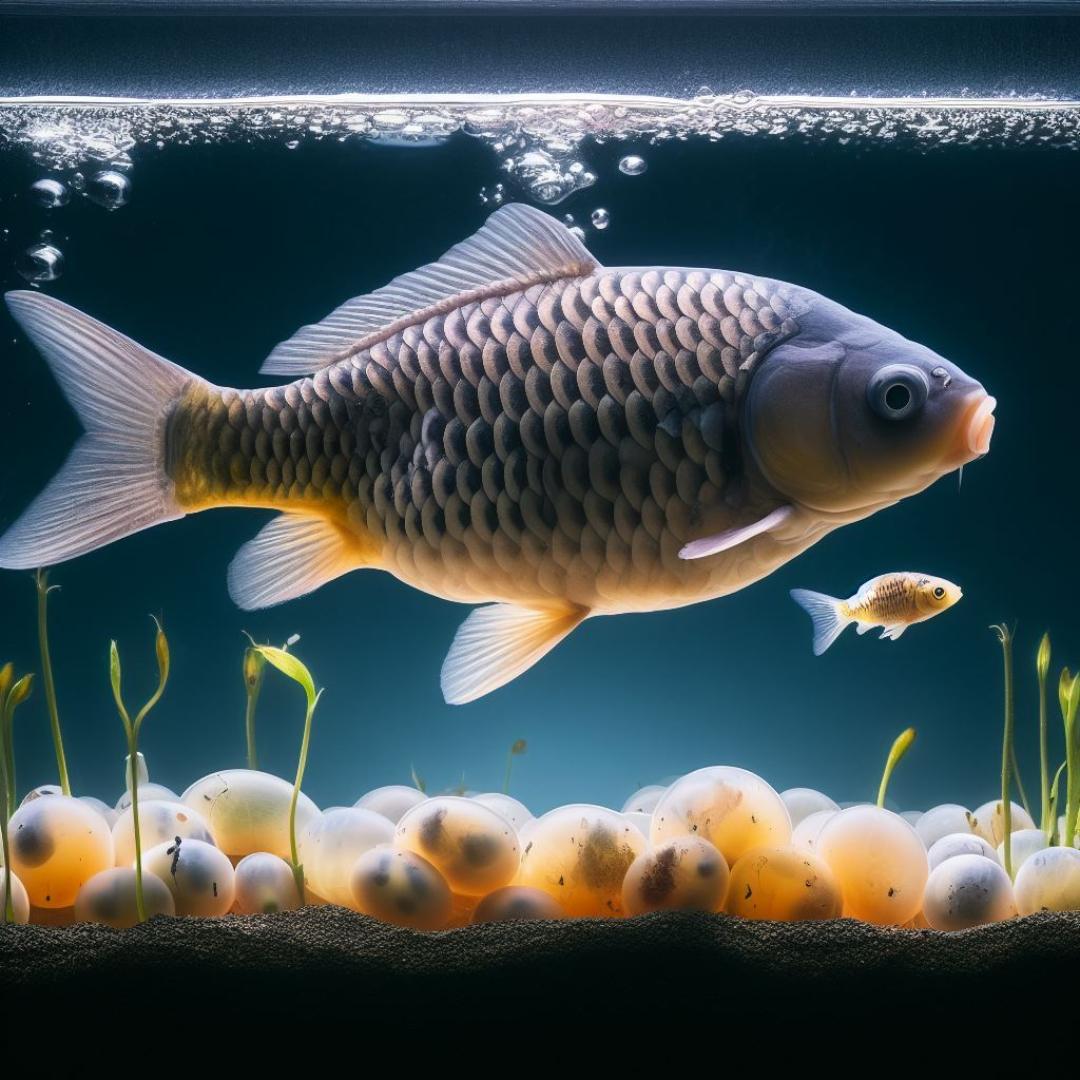Common carp come in two fundamental varieties: Cyprinus carpio morpha hungaricus and C. carpio morpha acuminatus.

Common carp belong to Class Osteichthyes (the bony fishes), the Order Cypriniformes, and the Family Cyprinidae. Native forms and adapted strains can have a wide range of body shapes, from extended to deep ovals.
Common carp come in two fundamental varieties: Cyprinus carpio morpha hungaricus and C. carpio morpha acuminatus. The first has a long, torpedo-like body, whereas the second’s body is short, stocky, and has a high shoulder.
Habitat
Common carp can be found within the range of 3–35 ºC. The ideal water temperature for development and reproduction is between 20 and 25 ºC. In the wild, common carp may be found in the middle and lower reaches of rivers, as well as in places with shallow water and muddy bottoms.
Reports of the Food and Agriculture Organisation
Fish culture has come to be the fastest-developing region in the global market for extended delivery of fish. However, to preserve the significant growth in aquaculture, there’s a desire to provide fish that attain optimum growth within the shortest viable time.
Several chemical compounds have been used as growth promoters; however, making use of chemical compounds is challenged by the improvement of antibiotic-resistant microorganism strains, residual effects, and environmental degradation, amongst others. Therefore, there’s a desire for an eco-friendly alternative.
Why Common Carp?
- Carpio accounts for nearly 70% of all freshwater aquaculture production. It has numerous advantages, along with the usage of appreciably much less fish meal and fish oil than different crucial aquaculture species and having a low mortality rate in keeping with
Objectives
- To determine the microbiological contents of C. carpio by using methionine
- To examine the impact of essential amino acids on the growth performance of C. carpio
Our Research
As the world’s population increases, aquaculture plays an important role in meeting the high demand for fish products. Increasing demand, uncertain availability, and the high price of fish meals lead to a drive to find alternative protein sources to reduce dependency on fish meals as the main protein source in aqua feeds. Plant proteins are formulated as the main fish meal substitutes in fish feed.
However, there are some nutritional imbalances when a dietary fish meal is replaced by a plant protein source. Methionine is one of the amino acids that has an impact on improving the growth and immune systems of humans and many animals, which has always been of interest to researchers.
Methionine is an essential sulphur amino acid. At present, an increasing number of aquatic animal feed formulations have been considered to replace fish meal with relatively inexpensive plant protein, and methionine is generally regarded as the first limiting amino acid in a plant-based diet for fish. In this study, the effect of this amino acid on growth indices and resistance against salinity tension on common carp fish has been investigated.
For this purpose, two treatments were made from common carp and fed with dietary foods containing methionine 3% for 4 months. During this period, the fish were biometrics three times. Data analysis was performed using Minitab software version 17 and Excel, and comparing the means of treatments in a completely randomised design was performed using one-way ANOVA and existent or lack of significant difference in 3% of the level of probability (P<0.05).
Regarding the results obtained from methionine acid on food conversion rate (FCR), body length, body weight gain, and percentage of body weight gain of carp, it had a significant impact (P<0.05); however, increasing body weight gain, body length, and decreasing FCR were observed in treatment groups (P<0.05); however, condition factor (CF), growth specific rate (SGR), feed efficacy ratio (FER), and survival rate (SR) showed significant differences (P<0.05). Methionine supplementation also improved intestine weight, length, folds, and height.
Aeromonas, Escherichia coli, Lactobacillus, and Bacillus were changed by dietary methionine supplementations to the intestine. Water quality parameters were also checked. The changes in these physiological factors allowed for the content of supplemental methionine in feed to improve the growth performance and intestinal microflora of C. carpio.
Therefore, according to the present results, applying salinity stress to different treatments showed that the presence of methionine in the feed of carp fish may have a significant effect on their resistance and survival. Hence, the use of 3% methionine to increase the weight of the carp is recommended.
Methodology
Three experiments were conducted by using three aquariums and keeping 15 carp in each aquarium. 1 aquarium for control and 2 aquariums for methionine supplements. A standard diet was formulated by using different feed ingredients, i.e., corn gluten (30% CP), sunflower meal (35%), rose polish (10%), crude fat (7%), crude fibre (6%), crude ash (>10%), and methionine (3%).
Measurements
Length and weight are measured with a measuring scale and balance machine, respectively.
Feed conversion ratio = feed intake/body weight gain
Conclusion
Total microbial count by using culturing media, protein, fibre, fat, and energy are essential factors that can affect the balance between gut microbiota and intestinal health.
Methionine deficiency results in slow growth and feed efficiency and leads to the development of cataracts in fish. With methionine, digestive function is improved by this supplement.
There is an 8-gramme increase in body weight and 4cm in the average length of the experimental group as compared to the control group.